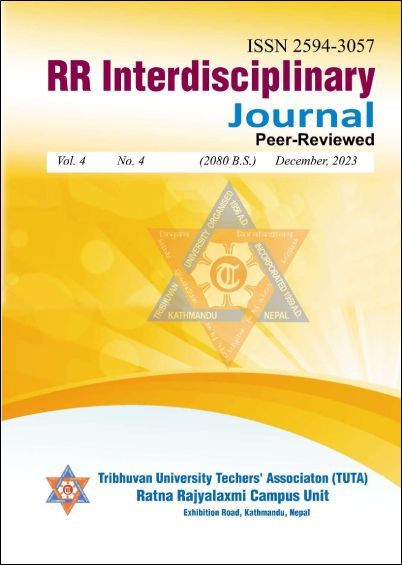Human Nature Bonds in Wordsworth’s “The Ruined Cottage”
DOI:
https://doi.org/10.3126/rrij.v4i4.62749Keywords:
ecocriticism, Margaret, nature, soul, The Ruined Cottage, William WordsworthAbstract
This article explores the theme of human nature bonds in William Wordsworth's poem, The Ruined Cottage (1799). The poem depicts the story of a rural family facing poverty and despair, with a focus on the protagonist's relationship with nature, fellow human beings, and the wider community. The protagonist's deep connection with the natural world is highlighted, portraying nature as a source of solace and spiritual renewal. The bonds within the human community are also explored, depicting both acts of compassion and indifference. The poem emphasizes the importance of empathy and communal support in the face of adversity, fostering a sense of collective understanding. Through its portrayal of human nature bonds, "The Ruined Cottage" underscores the restorative power of nature, the complexities of human relationships, and the significance of communal solidarity.
The researcher has planned to examine The Ruined Cottage through the lens of ecocriticism by focusing on the correspondence between the gradual withering of Nature and the gradual demise of Margaret’s soul to reach a comprehensive interpretation of the poem. The researcher has explored on the importance of humankind’s ability to survive in nature by considering the viewpoints of the Yale School critics, the New Historicists, and the ecologists also.




